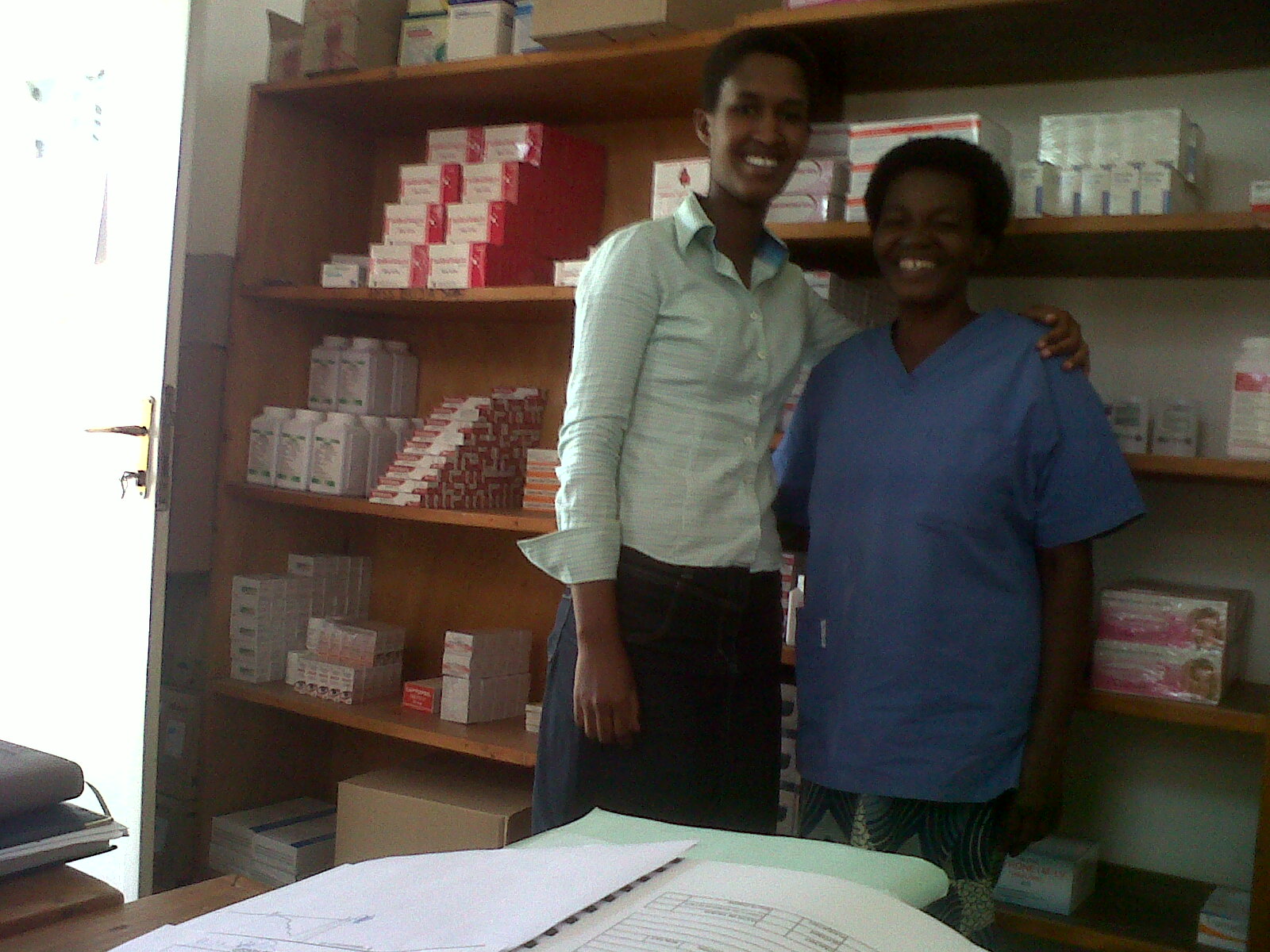Since childhood, I have always heard about Jeanne Gapiya, one of the founders of my placement organization ANSS (Association Nationale de Soutien aux Séropositifs et aux maladies du Sida). In 1993, she created the first organization to help HIV infected persons in Burundi. Her name has always inspired me with courage and determination. I’ll let you guess the eagerness I had to start my new job.
Certainly I knew a lot about AIDS through school, friends, or the activities that I have conducted in various youth associations, but I had never felt so engaged. I couldn’t believe I would be working with people like Jeanne; I couldn’t believe that I was “officially” involved in the HIV/AIDS fight.
Even though I knew ANSS was the largest center of care for HIV patients in Burundi, I didn’t expect to see such a large number of people arriving every day for their monthly treatment. My throat was in a knot every time my eyes crossed the smile of young kids brought by their parents to take their medicines. My heart was filled with bitterness when I saw young people of the same age as me coming to receive healthcare at ANSS. I kept wondering why life has been so hard for them.
I was torn between feelings of anger, pity, and especially impotence. It is true that at ANSS, people receive moral and material support, but questions kept running through my head: “Was it enough? Were we contributing to making these people’s lives better or were we just delaying imminent death?”
The sense of excitement that I had when I walked through the doors on day one began to gradually dissipate, until the day I met Antoinette.
I see Antoinette almost every day in the hallways of the ANSS where she works as a cleaner. The day she first walked into my office, she began to tell me how ARVs (antiretroviral drugs) have revived her. In 1993, she was pregnant with her third children when her husband was killed in the civil war. She had no idea she was HIV infected until 1997 when she took a screening test. At that moment, she thought her life was over. The future seemed to be obscure.
“I was more upset for my children. How would they live without parents or a family?” she said. In those days, ARVs were not yet available in Burundi and the patients were only taking the Cotrimoxazole to prevent opportunistic infections. In 2000, when Jeanne Gapiya announced that Antoinette had been selected to be among the first people to benefit from ARVs in Burundi, she weighed 30kg:
“I could not walk, let alone go to work! I don’t know what I could offer or do to thank ANSS. They saved me and my children. Everyone here has been more than a family to me.” Today, twenty years after her husband passed, Antoinette is a radiant woman, and her children have grown up and completed their studies. Antoinette showed me with pride the pictures of her two grand-children. After that discussion, I felt so honored and proud to work with an organization like ANSS that brings more than hope to people like Antoinette.

